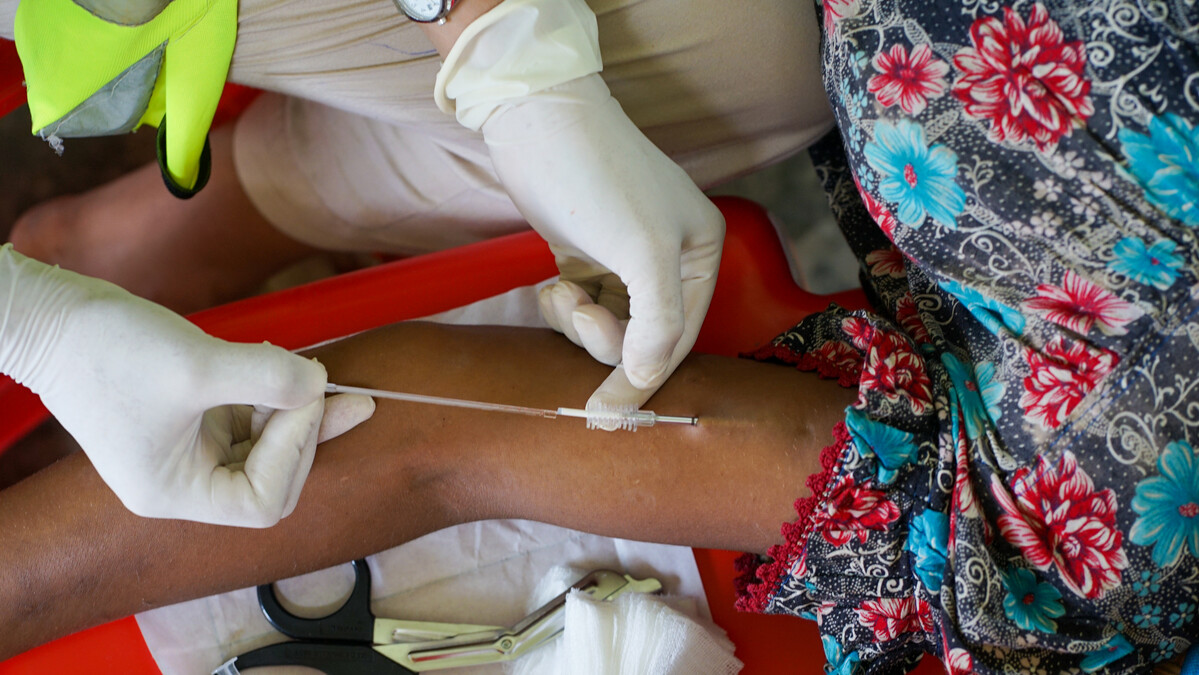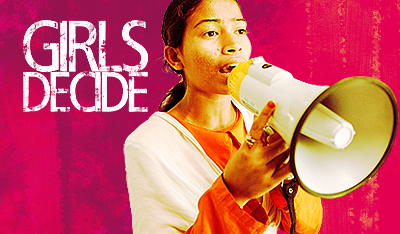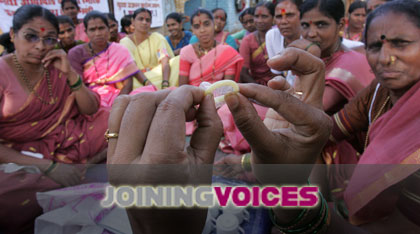
One of our main priorities is to ensure universal access to, and informed use of effective contraception. Millions of people lack the knowledge and information to determine when or whether they have children, and they are unable to protect themselves against sexually transmitted infections (STIs).
Articles by Contraception

Choice Over Challenge
Evidence indicates that an estimated 163 million women worldwide face unmet needs for contraception, with the highest proportion of this occurring among women in Sub-Saharan Africa and South Asia. To address this pressing issue, it is imperative to prioritize the inclusion of a comprehensive range of contraceptive methods that cater to the diverse needs of women across various age groups. By ensuring a wide array of contraceptive options, we can significantly reduce the prevalence of unsatisfied demand and unmet needs among women globally. In a promising development, India recently announced the integration of contraceptive implants into its public health system, which was previously inaccessible and posed significant affordability challenges for Indian women. Monitoring data from clinics associated with the Family Planning Association of Nepal (FPAN, a member association of IPPF South Asia Region) indicates that a considerable number of Indian women, primarily from Bihar and Uttar Pradesh, cross the border seeking contraceptive implant services in Nepal’s Terai Region. However, beyond mere statistics, little is known about their experiences. Consequently, it is crucial to generate evidence by conducting an in-depth exploration of their cross-border journeys. To address this need, IPPF-South Asia Region and FPAN have collaboratively undertaken a cross-sectional exploratory multi-centric study adopting mixed-methods approach that combines quantitative and qualitative methodologies. Download the document to read the full study.

Japan Trust Fund
The Japan Trust Fund (JTF) represents a visionary partnership that began in 2000 between the Government of Japan and IPPF. Together, we invest in programmes that prioritize health equity, gender equality, and human security for all. Traditionally a driving force behind IPPF's efforts to support the integrated HIV prevention programmes of our Member Associations in Africa and Asia, JTF has adjusted to reflect changing global health priorities. We attach importance to universal access to sexual and reproductive health and rights - an essential contributor to universal health coverage and the global development goals. These projects have transformed the lives of people most vulnerable to HIV and high risk of maternal and child mortality. Equally, it ensures that as a donor, the GOJ’s response to HIV remains people-centred and contributes to human security.

ACT!2030
IPPF collaborates with UNAIDS and The PACT to implement ACT!2030 (formerly ACT!2015), a youth-led social action initiative which engages young people in 12 countries with advocacy and accountability around the Sustainable Development Goals (SDGs) and other SRHR agreements/frameworks. ACT!2030 was initiated in 2013 as a way to increase youth participation in the negotiations leading up to the adoption of the post-2015 development agenda, and for two years focused on establishing alliances of youth-led and youth-serving organisations in 12 countries across the world. The project is currently in Phase 4, which runs until the end of 2017, and aims to establish youth-led, data-driven accountability mechanisms to ensure youth engagement with the implementation of the SDGs and build an evidence base for advocacy. Ultimately, Phase 4 of ACT!2030 seeks to identify, assess and address key policy barriers to young people’s sexual and reproductive data by using existing data, supplemented by youth-collected data, to advocate and lobby for policy change. This phase involves four main activities: indicator advocacy (persuading decision makers to adopt youth-friendly SRHR and HIV indicators, including on things like comprehensive sexuality education (CSE) and access to youth-friendly services, into national/global reporting mechanisms); evidence gathering (creating national databases on quality of and access to youth-friendly services and CSE); communications (transforming this data and evidence into communications pieces that can be used to advocacy and lobby at national and international level); and global exchange (facilitating global visibility to share advocacy and engagement learnings and increase youth-led accountability in global and regional processes). ACT!2030 is implemented by national alliances of youth organisations in 12 countries: Algeria, Bulgaria, India, Jamaica, Kenya, Mexico, Nigeria, Philippines, South Africa, Uganda, Zambia and Zimbabwe.

Girls Decide
This programme addresses critical challenges faced by young women around sexual health and sexuality. It has produced a range of advocacy, education and informational materials to support research, awareness-raising, advocacy and service delivery. Girls Decide is about the sexual and reproductive health and rights of girls and young women. Around the world, girls aged 10 to 19 account for 23% of all disease associated with pregnancy and childbirth. An estimated 2.5 million have unsafe abortions every year. Worldwide, young women account for 60% of the 5.5 million young people living with HIV and/or AIDS. Girls Decide has produced a range of advocacy, education and informational materials to support work to improve sexual health and rights for girls and young women. These include a series of films on sexual and reproductive health decisions faced by 6 young women in 6 different countries. The films won the prestigious International Video and Communications Award (IVCA). When girls and young women have access to critical lifesaving services and information, and when they are able to make meaningful choices about their life path, they are empowered. Their quality of life improves, as does the well-being of their families and the communities in which they live. Their collective ability to achieve internationally agreed development goals is strengthened. Almost all IPPF Member Associations provide services to young people and 1 in every 3 clients is a young person below the age of 25. All young women and girls are rights-holders and are entitled to sexual and reproductive rights. As a matter of principle, the IPPF Secretariat and Member Associations stand by girls by respecting and fulfilling their right to high quality services; they stand up for girls by supporting them in making their own decisions related to sexuality and pregnancy; they stand for sexual and reproductive rights by addressing the challenges faced by young women and girls at local, national and international levels.

Joining Voices
More and more low- and middle-income countries are pledging pledged to expand access to rights-based family planning. Through Joining Voices you can ensure your government meets its commitments. Joining Voices is an advocacy project that aims to safeguard and strengthen financial commitments to reproductive health and family planning, and reinforce political leadership on universal access. Joining Voices is facilitated on behalf of civil society by IPPF and Countdown 2015 Europe. The project is led by IPPF European Network and funded by the Bill & Melinda Gates Foundation.

Sustainable Networks
Support for International Family Planning Organizations 2; Sustainable Networks (SIFPO 2) is a five-year programme funded by the United States Agency for International Development (USAID) aimed at improving IPPF's capacity to significantly increase family planning programming worldwide, working in partnership with The Population Council and IPPF Member Associations. USAID, through SIFPO 2 is supporting IPPF to deliver high quality, affordable family planning services to young, poor and, underserved women and men in USAID prioiryt countries. By strengthening IPPF's organizational capacity and by supporting Member Associations directly, SIFPO 2 is helping build a stronger, more effective federation. By the end of the project in 2019, we aim to: Strengthen organizational systems and improved capacity to deliver quality family planning and other health programmes Test, implement and disseminate innovations, tools and approaches for delivering family planning services to young, poor and underserved communities Implement or leverage financing mechanism that improve the sustainability of family planning and other health services Strengthen the capacity of IPPF Member Associations and other partner governments to provide high quality family planning and other health services Pursue innovative partnerships to strengthen health service delivery networks The Support for International Family Planning Organisations – SIFPO 2 – will transform IPPF’s systems and capacity to deliver quality assured, affordable Family Planning. Through a series of targeted investments, IPPF will move to a new trajectory of performance with new systems that enable data driven decision making and partnerships that increase sustainability. This investment will revolutionize our network and improve health and rights for millions of young, poor and/or underserved women and men in USAID family planning priority countries. Result areas Strengthening Organizational Capacity. The Sustainable Networks award provides IPPF with the opportunity to invest in strengthening its global systems to deliver high quality family planning. The project will allow for targeted contributions to our health management information system, supply chain management, and quality of care. We will support leadership and implementation of best practice across all MAs through organizational learning and investments in impactful, proven models of service delivery. Increasing Sustainability of Country-Level Family Planning. Sustainable Networks offers USAID the opportunity to leverage IPPF’s broad reach and extensive service delivery network by investing directly in locally owned and managed organizations. Through Sustainable Networks, our Member Associations will build the capacity of their local partners to provide high quality family planning and other health services and will pursue innovative partnerships to strengthen their health service delivery networks. Partners In order to deliver SIFPO-2, IPPF has partnered with selected family planning and research organizations including: The Population Council conducts research to address critical health and development issues. The Population Council will lead the research components of SIFPO-2 and will ensure that systematic evidence is generated on IPPF's programmes for organizational learning and wider dissemination. University of California San Diego (UCSD) Center on Gender Equity and Health (GEH) conducts innovative global public health research, including developing and evaluating evidence-based policies and practices related to gender-based violence and other gender inequities and their impact on health. IPPF and GEH are adapting and evaluating a promising clinic-based intervention (ARCHES, Addressing Reproductive Coercion in Health Settings) to reduce intimate partner violence, reproductive coercion, and related unintended pregnancy among women and girls attending family planning clinics. SIFPO-2 is also working in partnership with IPPF member associations in Nepal, Kenya, Malawi, Liberia, the Ivory Coast, Togo, Domonican Republic, Honduras, Guatemala, and El Salvador. The Support for International Family Planning Organizations 2 - Sustainable Networks project is a five-year cooperative agreement funded by the US Agency for International Development under Agreement No. AID-0AA-A-14-00038, beginning May 13, 2014. The information provided in this document is not official US government information and does not necessarily represent the views or positions of the US Agency for International Development. Project activities Here is a selection of SIFPO2 project activities across Asia, Africa and Latin America: Family Planning Association of Nepal (FPAN) Supporting voluntary family planning and Zika prevention in countries affected by Zika Family Health Options Kenya (FHOK)

Evidence Project
Under the Evidence project, IPPF is undertaking innovative research on respecting, protecting and promoting human rights in family planning/reproductive health services and ensuring community voices are part of efforts to improve and strengthen family planning programming. The Evidence Project uses implementation science to improve family planning policies, programs, and practices. Led by the Population Council in partnership with INDEPTH Network, International Planned Parenthood Federation, PATH, Population Reference Bureau, and the project’s University Resource Network, the five-year project (2013–2018) is investigating which strategies work best in improving, expanding, and sustaining family planning services. IPPF is leading on two cross-cutting areas of research. Firstly under the Evidence project, we are undertaking research on how the respect and protection of human rights of women and girls can be instituted and operationalised, and how programs can be held accountable for providing high-quality services. http://evidenceproject.popcouncil.org/technical-areas-and-activities/equity-rights-and-accountability. In order to address the need for indicators and tools for rights based family planning, the Evidence Project has partnered with global experts on human rights and family planning, the International Planned Parenthood Federation’s Sustainable Network Project (SIFPO/IPPF) and with colleagues at Reproductive Health Uganda (RHU) to develop and validate the Rights-Based Family Planning (RBFP) Service Delivery Index in Uganda. This is work is being undertaken in close collaboration with the Economic Policy Research Centre Uganda and University College London. In addition, we are undertaking a variety of activities that aim to contribute to a deeper knowledge of whether and how the implementation of accountability mechanisms in family planning and reproductive health programs improves clients’ access to and quality of services. For example, a multi-site case study in Uganda uses process evaluation methodology to explore the implementation of two social accountability programs, aiming to determine what hinders and facilitates engagement at the community level and its translation into improved social accountability processes and reproductive health outcomes. http://evidenceproject.popcouncil.org/accountability-mechanisms-to-improve-family-planning-and-reproductive-health-programs/








